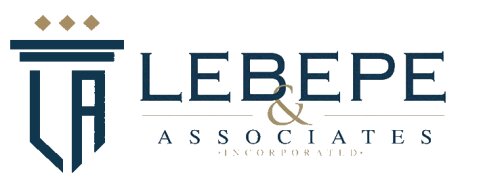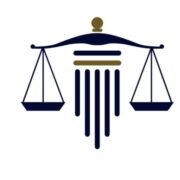Best Native People Lawyers in Polokwane
Share your needs with us, get contacted by law firms.
Free. Takes 2 min.
List of the best lawyers in Polokwane, South Africa
About Native People Law in Polokwane, South Africa
Polokwane, the capital city of Limpopo Province in South Africa, is home to a diverse population, including Indigenous communities. Native People in this region frequently belong to various tribes that have longstanding traditions and cultural ties to the land. Over time, Indigenous Rights have become an essential field of law in Polokwane, dealing with the protection of Native customs, land rights, and heritage preservation. Due to the complex interplay between traditional laws and modern South African legal standards, Native People Law has evolved to cater to both traditional indigenous laws and the country's formal legal framework. This field seeks to ensure that Indigenous communities can maintain cultural practices while gaining access to legal resources and protections under national law.
Why You May Need a Lawyer
Navigating Native People Law can be challenging without professional guidance. Here are some common situations where legal help may be required:
- Land Disputes: Conflicts over land ownership and usage rights are common. Legal representation can help in asserting or defending land claims.
- Inheritance and Succession: Disputes often arise regarding inheritance rights under both traditional and contemporary legal systems.
- Traditional Leadership Disputes: Conflicts about the legitimacy or succession of tribal chiefs or council members may require legal intervention.
- Cultural Rights Protection: Ensuring that cultural practices are safeguarded from infringement or misappropriation can necessitate legal action.
- Access to Government Services: Legal aid may be needed to help navigate bureaucracy in accessing government services and programs.
Local Laws Overview
In Polokwane, the laws affecting Native People often involve an interplay between formal national laws and traditional customs. Key aspects include:
- Indigenous Land Rights: The Restitution of Land Rights Act and the Traditional Leadership and Governance Framework Act are crucial in resolving land disputes.
- Cultural Heritage Protection: The National Heritage Resources Act protects sites and practices significant to Indigenous communities.
- Traditional Leadership Regulations: Frameworks exist to govern the operation and recognition of traditional leaders.
- Environmental Conservation Laws: Regulations aim to balance developmental needs with the preservation of sacred lands and natural resources.
Frequently Asked Questions
What rights do Native People have to land ownership in Polokwane?
Native People can claim land ownership rights under national acts like the Restitution of Land Rights Act, especially if they are historically dispossessed of their lands.
How do traditional laws interact with national laws in South Africa?
While traditional laws govern cultural and social practices within tribes, they must align with the overarching national legal framework, ensuring no conflicts with constitutional rights.
Can traditional leaders influence governmental policies?
Yes, traditional leaders often play a role in local governance and can influence decisions affecting their communities within certain legal boundaries.
What legal recourse exists for protecting cultural practices?
Laws such as the National Heritage Resources Act exist to protect Indigenous cultural heritage from misappropriation and destruction.
Is it necessary to involve a lawyer in tribal leadership disputes?
Given the legal and cultural complexities, involving a lawyer can be crucial in resolving leadership disputes fairly and in accordance with applicable laws.
What steps are involved in claiming ancestral land?
Claimants usually need to file a claim with the Commission on Restitution of Land Rights, providing evidence of historical ties to the land.
How does one register a traditional marriage legally?
Traditional marriages can be registered under the Recognition of Customary Marriages Act, provided certain legal conditions are met.
Are there legal protections against forced evictions from tribal land?
Yes, several statutes, including the Prevention of Illegal Eviction from and Unlawful Occupation of Land Act, protect against unlawful evictions.
How are inheritance disputes resolved under both customary and national law?
While customary practices often dictate inheritance, national laws provide a legal framework to ensure fair resolution in disputes, potentially requiring court intervention.
What is the role of the South African Human Rights Commission in Indigenous Rights?
The commission can investigate alleged rights violations and provide a platform for Indigenous communities to report grievances.
Additional Resources
For further assistance, you may contact:
- Commission on Restitution of Land Rights: Assists with land claims.
- National House of Traditional Leaders: Offers support and advocacy for traditional leaders.
- South African Human Rights Commission: Provides resources and advocacy on human rights issues.
- Legal Aid South Africa: Offers affordable or free legal services to those in need.
Next Steps
If you require legal assistance, start by gathering any relevant documentation and details related to your case, such as land deeds, historical evidence, or any official notices. Then, consider consulting with a lawyer who has expertise in Native People Law. You may reach out to legal aid services or local legal firms specializing in Indigenous legal matters to learn more about your options and prepare for any legal proceedings.
Lawzana helps you find the best lawyers and law firms in Polokwane through a curated and pre-screened list of qualified legal professionals. Our platform offers rankings and detailed profiles of attorneys and law firms, allowing you to compare based on practice areas, including Native People, experience, and client feedback.
Each profile includes a description of the firm's areas of practice, client reviews, team members and partners, year of establishment, spoken languages, office locations, contact information, social media presence, and any published articles or resources. Most firms on our platform speak English and are experienced in both local and international legal matters.
Get a quote from top-rated law firms in Polokwane, South Africa — quickly, securely, and without unnecessary hassle.
Disclaimer:
The information provided on this page is for general informational purposes only and does not constitute legal advice. While we strive to ensure the accuracy and relevance of the content, legal information may change over time, and interpretations of the law can vary. You should always consult with a qualified legal professional for advice specific to your situation.
We disclaim all liability for actions taken or not taken based on the content of this page. If you believe any information is incorrect or outdated, please contact us, and we will review and update it where appropriate.












